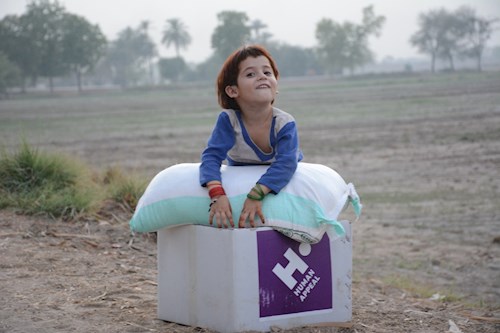Your Final 10 Nights for Gaza – Automate your charity in the blessed last 10 nights of Ramadan.
Schedule your donationsYour Final 10 Nights for Gaza – Automate your charity in the blessed last 10 nights of Ramadan.
Schedule your donationsYour Final 10 Nights for Gaza – Automate your charity in the blessed last 10 nights of Ramadan.
Schedule your donationsYour Final 10 Nights for Gaza – Automate your charity in the blessed last 10 nights of Ramadan.
Schedule your donations24th May 2019

1. What is Sadaqah?
Sadaqah comes from the word sidq (sincerity), meaning that it is a sign of sincerity of faith on the part of the person who gives it. It is a generous and sincere act of kindness. One way to give sadaqah is to donate money to poorer or needy people.
2. How do I give Sadaqah?

You can give Sadaqah in person or online. You can easily donate through Human Appeal. Through our projects, we provide water, food, healthcare, education, and livelihood support to vulnerable people around the globe
There are various ways in which this could be done. A quick way to give sadaqah is to donate online. This gives you the added option to choose which specific projects you want to donate towards. Click here for more information.
Mosques often have charity buckets or penny boxes, which you could donate your money to. Attending charity events is an opportunity to have an enjoyable experience, whilst supporting a good cause through donating. You could even collect money yourself for charity. Perhaps set up a stall or do a sponsored activity and get people to donate. A little goes a long way!
3. How is Sadaqah different to Zakah?
Sadaqah is given willingly without any obligation, and can be given at any time. Sadaqah also doesn't restrict itself to money but can be given in many forms, such as a performing a kind act towards others.
Zakah is an obligation for those who reach the minimum threshold to what they own (nisaab), thus they are obliged to give a portion of wealth away according to this amount. Zakah needs to be given to specific people who are in need, whereas Sadaqah can be given to anyone.
4. What if I don't have enough money?
As mentioned above, Sadaqah doesn't restrict itself to money. Spreading knowledge amongst people, giving sincere advice or helping someone with their housework can be forms of Sadaqah. In fact, in Islam, even smiling to your Muslim brother is considered charity!
If, however, you want to focus more on helping needy and less fortunate people around the world, you can also volunteer to help a charity so you can achieve this aim together. Why not get involved with Human Appeal?
5. How does Sadaqah change a person?
Giving sadaqah can change the state of one's heart, by making it softer and more attentive to kind acts towards others. Sadaqah is also a form of productivity in which one gives, yet does not expect from others, as they know that their reward lies with Allah (swt).
6. Can Sadaqah benefit us after we depart from this world?
Yes, charity goes a long way! If for example, you build a well in this life, you'd be rewarded for every drop of water one consumes from the well, even after your death. In the same way, if you were to buy a chair for a mosque, you'd be rewarded every time someone sits on that chair, even after you depart. Or, if you were to build a mosque, you'd be rewarded for every prayer performed within that mosque.
7. Can we give Sadaqah on someone else's behalf?
Yes, you can share the reward with someone by giving charity on their behalf whether they are alive or have departed.
8. How can we encourage others to give Sadaqah?
Educating just one person on the benefits of charity could be the first step. Be sure to speak about its virtues and its reward, and let your own character show how giving Sadaqah can bring change to people for the better.
Send texts or emails detailing different charity projects and how they can get involved. Set up a JustGiving page and send it to others to donate to help you reach your target. You could even invite them to charity events or inform them of when there is an emergency appeal.
9. How can we encourage children to give Sadaqah?
Make giving Sadaqah seem fun and joyful to children. Explain to them the benefits first and foremost, by stating how we are doing this for Allah (swt). Then show them images of needy children who are of similar age to them. Let them express how they feel about the situation and how they might want to help them.
You can involve children in charity activities in many ways, such as setting up a stall at a party at their school or getting them to do a sponsored activity. Perhaps give a child a penny box and get them to ask family and friends to help them donate to a specific cause.
-----
As you can see, giving Sadaqah through your words and financial means can impact us greatly in this life and hereafter. May Allah grant us the ability to be able to see our wealth as surplus and give with conviction, knowing He will compensate us in the most beautiful way, Ameen.